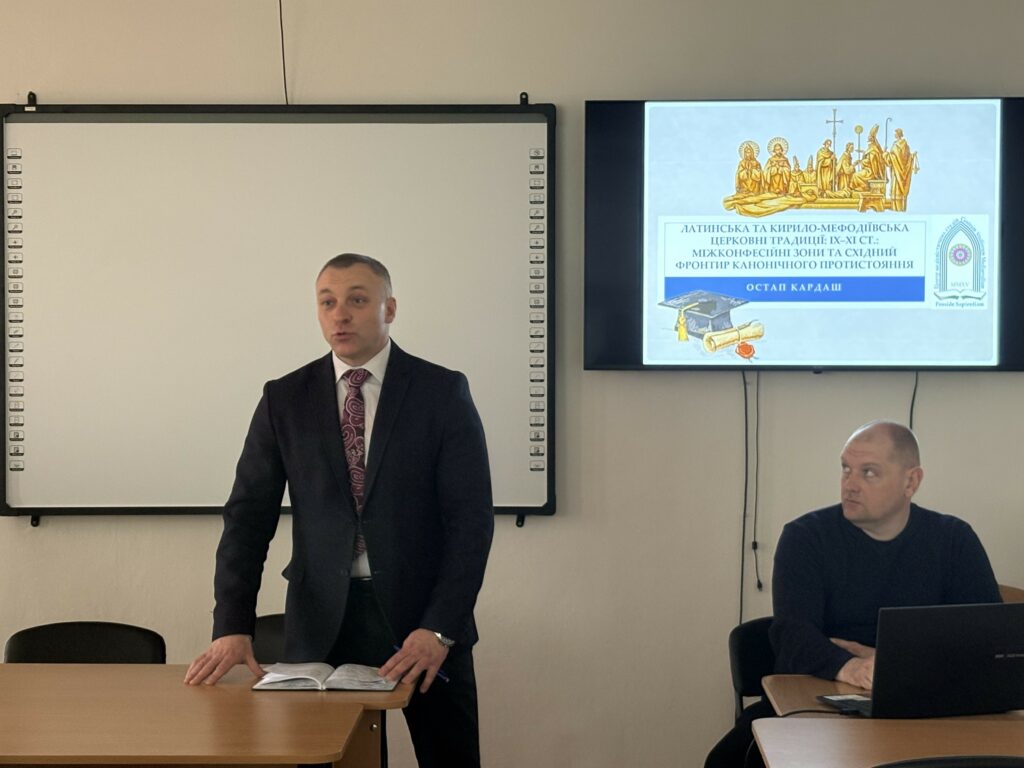On March 25, 2025, a meeting of the section of history, political science and international relations was held within the framework of the annual reporting scientific conference of the Vasyl Stefanyk Precarpathian National University. The event was held under the leadership of the Dean of the Faculty of History, Political Science and International Relations, Candidate of Historical Sciences, Associate Professor Ihor Hurak, who delivered an introductory speech.
The plenary session of the section began with a report by Ostap Kardash, Doctor of Philosophy in History and Archaeology, Assistant Professor of the Department of World History, on the topic “Latin and Cyril-Methodist Church Traditions of the 9th–11th Centuries: Interdenominational Zones and the Eastern Frontier of Canonical Confrontation”. In his report, the researcher focused on the confessional division of the Christian world of that time, emphasizing the role of the eastern frontier; the topic of “interdenominational zones” was of particular interest, which, according to the scientist, served as spaces for cultural and religious dialogue, and sometimes conflict. The report was accompanied by a visualization of maps of medieval Europe and an analysis of sources of Latin and Old Slavic origin, which allowed the conference participants to immerse themselves in the historical context.
The plenary session continued with a speech by the Candidate of Economic Sciences, Associate Professor of the Department of International Economic Relations Semen Blahun with a report “Ukraine, Economy and War”. In his speech, the speaker analyzed the economic consequences of a full-scale war for Ukraine, paying special attention to such aspects as the transformation of the labor market, logistical challenges and the impact of international financial support. The block on the role of international economic relations in the country’s post-war reconstruction was particularly relevant, which sparked a lively discussion among those present.
After the speeches, the conference participants actively discussed the topics raised, asked questions to the speakers and shared their own thoughts on the prospects for interdisciplinary research. The meeting confirmed the high scientific level of research presented within the section, and emphasized the need for further interdisciplinary dialogues within historical, political science, and economic studies.

